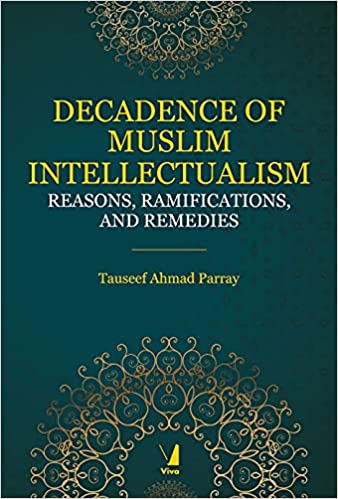Om Publications

Decadence of Muslim Intellectualism: Reasons, Ramifications, and Remedies
Tauseef Ahmed Parray
₹936 ₹995 (6% off)
ISBN 13
9789390054930
Binding
Hardbound
Language
English
Year
2021
The Islamic foundational sources—the Qur’an and the hadith—are full of references for knowledge, learning, and education (intellectualism) and make the seeking of knowledge as a religious obligation and a central part of belief. History bears witness to the fact that Muslims, attaining insights from these references and turning theory into practice, made not only significant contribution to various branches of knowledge which resulted in producing a great intellectual legacy but have been leading the world for a period of over 500 years, during the Middle Ages, and thus, made an outstanding manifestation on the “intellectual map” of the then world. It has been described as “one of the brightest chapters in the intellectual history” of the world and “one of the most brilliant civilizations in the history of humanity.” However, things have changed dramatically and drastically from the beginning of the early modern era, and tables have now turned upside down as far as “Muslim intellectual tradition” is concerned, resulting in “instability:’ “stagnation”’ and a subsequent “collapse” of the “Muslim intellectualism”. The major theme of this work is to provide a succinct overview of the concept of Knowledge in the Qur’anic perspective, to highlight/describe, precisely, the rise of “Muslim intellectualism”—from its formative phase to the golden age (7th-13th century CE), reasons and ramifications of its fall (decadence)—from 13th century CE onwards— and to provide some (possible) remedies to overcome this “decadence” and “deficit” in the present scenario. In other words, this work is a modest endeavor to find answers to these nagging and niggling questions about the intellectual history of Muslims: what were the reasons that led to the fall of Muslim intellectual legacy, of “Muslim intellectualism”?; how Muslims can rise again from this “slumber” to make their presence on the “intellectual map” of the 21st century global world?